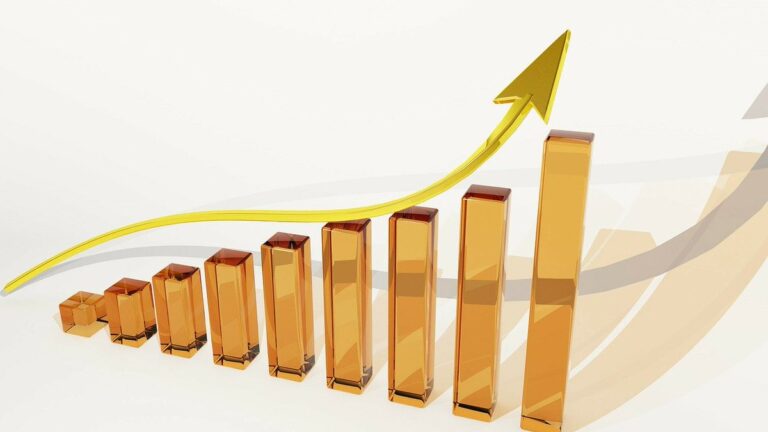AVEVA Group PLC (LON:AVV) has provided its results for the year ended 31 March 2020.
Summary results
| Year ended 31 March | FY20 | FY19 | Change |
| Revenue1 | £833.8m | £766.6m | 8.8% |
| Recurring revenue2 | £518.5m | £412.6m | 25.7% |
| Adjusted EBIT3 | £216.8m | £175.9m | 23.3% |
| Adjusted EBIT margin | 26.0% | 22.9% | +310bps |
| Profit before tax | £92.0m | £46.7m | 97.0% |
| Adjusted3 diluted earnings per share | 108.15p | 86.60p | 24.9% |
| Diluted earnings per share | 43.13p | 20.90p | 106.4% |
| Final dividend per share | 29.0p | 29.0p | – |
Highlights
· Revenue grew 8.8% to £833.8m (FY19: £766.6m)
· Organic constant currency revenue4 grew 7.4%
· Recurring revenue up 25.7% to £518.5m (FY19: £412.6m) representing 62.2% of total revenue (FY19: 53.8%)
· Growth across all geographic regions with Asia Pacific showing particular strength
· Each of the Business Units grew, with strong growth in Asset Performance Management (APM) and Planning & Operations
· Successful introduction of AVEVA Flex subscription model supporting strong growth in subscription
· Cloud growth accelerating with an increase of some 200% in total contract value
· Adjusted EBIT up 23.3% to £216.8m (FY19: £175.9m) with margins up to 26.0% (FY19: 22.9%), in-line with expected progress towards medium term target of 30%
· Strong balance sheet with cash and deposits of £114.6m, no debt and strong cash collection post year end
· Final dividend maintained at 29.0 pence per share reflecting confidence in AVEVA’s resilience, strong balance sheet position and ongoing cash generation, balanced with prudence regarding the global economic crisis. The Company has not furloughed any employees or made any reductions to headcount related to Covid-19. We also do not expect to utilise any government-backed financing
· Business outlook resilient with digitalisation key to driving customers’ efficiency and high levels of recurring revenue for AVEVA
Chief Executive Officer, Craig Hayman said:
“I am very pleased with AVEVA’s performance over the last year. The Group has grown as we play a leading role in the digitalisation of the industrial world, which is being driven by a need for sustainability, the industrial internet of things, Cloud, data visualisation and artificial intelligence. At the same time, we continued to drive operational improvement in the business, which is increasing recurring revenue and margins.
AVEVA’s team has adapted impressively to the current market and operating environment. The safety of our employees is paramount and I was very pleased that we managed to deliver a successful close to our financial year with 95% of employees working remotely. We are focused on being digital in everything that we do, accelerating Cloud and driving the roll out of our subscription offering, AVEVA Flex”.
Looking forward, AVEVA is well placed to navigate through the challenges of the current environment, with the benefit of recurring revenue from multi-year contracts. AVEVA is in a strong position and our strategy and medium-term objectives remain unchanged.”
Notes
1 Revenue is shown on a statutory basis. In FY19 revenue was also shown on a pro forma basis.
2 Recurring revenue is defined as subscription revenue plus maintenance revenue.
3 Adjusted Earnings Before Interest and Tax (EBIT) and Adjusted Earnings Per Share (EPS) are calculated before amortisation of intangible assets (excluding other software), share-based payments, gain/loss on fair value of forward foreign exchange contracts and exceptional items. Adjusted Earnings Per Share also includes the tax effects of these adjustments.
4 Organic constant currency revenue excludes the reverse acquisition accounting adjustment to deferred revenue in FY19 and FY20; a currency translation benefit of £7.6 million; and adjusts for the disposals of Wonderware Italy, Germany and Scandinavia, and the acquisition of MaxGrip.
Webcast and conference call
AVEVA will host a conference call and webcast, for registered participants, at 09:30 (BST) today.
To register for the webcast and access the presentation materials please visit: www.aveva.com/Investors
Conference calls dial in details:
Telephone UK: +44 (0) 2071 928 000 / 0800 376 7922
Telephone US: +1 866 966 1396 / +1 631 510 7495
Conference call code: 4799483
Conference call participants will be able to ask questions during the Q&A session and are also advised to watch the webcast.
A replay of the webcast call will be made available later in the day.
Chief Executive’s review
Summary
AVEVA delivered good financial results achieving revenue growth of 8.8% and adjusted EBIT growth of 23.3%, while continuing to drive a business model transition to subscription. Recurring revenue increased as a proportion of total revenue to 62.2% (FY19: 53.8%). This transition offers increased flexibility to customers, while generating long-term value for shareholders.
The Group’s operating margin benefited from an improvement in gross margin, due to a better sales mix and increased operational efficiency, operational leverage and underlying cost savings. At the same time, investment in areas including Sales & Marketing and Research & Development was increased to help generate future growth.
Covid-19
AVEVA achieved a good close to its financial year, despite the challenges related to Covid-19. The safety of AVEVA’s employees is paramount and the business has adapted well to remote working.
AVEVA’s software drives efficiency gains for the industries it serves. As such, digitalisation is key in dealing with the challenges that these industries are facing, for example helping drive efficiency in difficult operating environments and enabling unmanned operations. The Group has been accelerating its Cloud roll-out, while increasing investment in Cloud development, to provide flexibility for customers in how they consume software.
Despite this, the overall level of macroeconomic disruption has had some impact on customer confidence and in certain sectors it has caused supply chain disruption, making the overall business environment more challenging. Restrictions on mobility are resulting in services being performed remotely where possible and we expect to see the ongoing and planned reduction in perpetual licences increase. This is likely to lead to subscription revenues, which have continued to grow, comprising a greater proportion of the total.
Against a more challenging revenue growth backdrop, AVEVA is taking actions which are expected to result in a reduction in costs of approximately £50-60 million versus the Group’s pre-Covid-19 plans for FY21. At this point, AVEVA does not intend to make staff reductions in response to the economic environment, furlough any staff, or make use of government support programmes. Savings will be generated from reductions in discretionary spend, travel costs and lower costs from switching key events from physical to virtual.
Trading and markets
The industries that AVEVA serves are making increasing use of technology to reduce both capital and operating costs in the context of competitive pressures to increase efficiency, output, flexibility and improve overall sustainability. This is being enabled by ongoing technological mega trends that are driving the digitalisation of the industrial world, notably the industrial internet of things, Cloud, data visualisation and artificial intelligence.
This is driving growth in demand for industrial software. AVEVA is optimally placed to help its customers digitalise, due to its end-to-end product portfolio, which runs from simulation through design and construction and into operations. In addition, AVEVA has well-established market-leading positions serving the process, marine, batch and hybrid industries.
AVEVA achieved growth across all its geographical reporting segments and Business Units during the year.
End markets
AVEVA primarily serves process, batch, hybrid and marine industries. These industries provide staple requirements for basic consumption, such as Energy, Food, and Transport. As such, they have some level of resilience to the macroeconomic downturn.
AVEVA’s largest end market is Oil & Gas at around 40% of revenue, with around 10% of revenue exposed to greenfield capex in the sector. The Group has become more diversified since the combination with the Schneider Electric industrial software business. Packaged Goods (such as Food & Beverage and Pharma), Power, Marine, Chemicals & Petrochemicals, and Metals & Mining each accounted for 5-10% of Group revenue. Other markets include Water & Wastewater, Infrastructure and Discrete Manufacturing.
Within Oil & Gas the Group’s business is diversified across the capital and operational expenditure phases of the asset lifecycle, with AVEVA supplying customers in the upstream, midstream and downstream markets. AVEVA’s supply chain planning software is particularly well placed to help customers adjust to the current market conditions.
The ongoing structural growth drivers in each of our end markets are strong.
In Oil & Gas, overall end market conditions were stable for most of the year, with steady capital and operating expenditure across the upstream, midstream and downstream segments. The Group won contracts with both owner-operators such as BP and Engineering Procurement and Construction (EPC) customers, such as Worley. There was however a sharp reduction in oil consumption associated with the Covid-19 crisis towards the end of the financial year. This has led to several oil companies announcing reductions in capital expenditure, particularly for upstream projects, which will have a knock-on impact on the business of some of AVEVA’s EPC customers. Most of these EPC customers have signed multi-year subscription contracts in the past two years with a minimum level of spend, which will provide some insulation for AVEVA. Tough market conditions also offer opportunities to drive further efficiencies through digitalisation, particularly in operations, where AVEVA’s software can offer solutions to supply chain planning challenges.
In Marine, AVEVA delivered a good performance, driven by product cycle upgrades and a large multi-year subscription contract win with Hyundai Heavy Industries in Asia Pacific.
The Group’s other end markets are largely non-cyclical and are primarily driven by structural growth as industries make increasing use of technology to drive efficiency. During the year we saw customer wins in the consumer packaged goods market with Procter & Gamble and Colgate Palmolive, the semi-conductor market with Micron and the food and beverage space with the coffee division of Olam International, a leading food and agri-business.
AVEVA has a strategy to grow in new markets, such as the infrastructure market around cities, water and wastewater utilities, power utilities, facility and campus managers, transportation operators and data centres. There have been several new customers, particularly in smart cities, with the Unified Operations Centre and water and wastewater.
AVEVA recently launched its Unified Operations Centre for Datacentres in collaboration with Schneider Electric, to provide a homogenous view of engineering, operations, and performance across a heterogeneous, legacy installed base. Datacentre providers will benefit from this partnership by connecting platforms and data sets that previously existed in disparate systems. They will also be able to scale regardless of the number of sites or global location. Datacentre staff will be empowered to make faster, more informed decisions and optimise asset and operational efficiency throughout the datacentre lifecycle. As a result, datacentre providers can deliver a globally consistent experience to address the expanding digital infrastructure needs of their clients.
Sales channel and geographical performance
AVEVA delivered growth across all geographies and saw good execution from both direct and indirect sales channels, the latter of which represented approximately one third of total revenue, including sales made through Schneider Electric and leveraging its end-to-end EcoStruxure architecture. The recent combined launch of a Datacentre product, which will be taken to Schneider’s top global accounts, highlights the value of this relationship.
Performance from the direct sales channel was strong, benefiting from investment and revised sales incentives.
The indirect sales channel performed well, achieving growth across all regions. AVEVA invested in and simplified its partner network, including enabling Schneider Electric to process sales leads through this channel.
Growth was assisted by the sale of additional AVEVA products, particularly AVEVA Asset Performance Management (APM), as channel sales moved beyond its historical focus on Monitoring & Control. Towards the end of the year, AVEVA introduced the AVEVA Select programme, which provides our partners with the opportunity to become distributors of the full AVEVA portfolio.
As part of the partner network simplification, AVEVA divested distributors in Italy, Germany and Scandinavia. This had an immaterial impact on the financial results.
EMEA: Overall revenue increased by 4.1% driven by strong growth in Russia and CIS in the Oil & Gas, power and industrial markets, supported by collaboration with Schneider Electric. The other regions in EMEA produced flat to mid-single digit growth, reflecting the economic environment and subdued North Sea oil activity. There were a number of key deals in the food and beverage, power, water and marine markets as well as expansion with existing EPC customers.
Americas: Overall revenue increased by 2.3% and grew in both in North America and Latin America, with Brazil performing very well due to both expansion deals and new wins. The reduction in Services revenue remained higher in the Americas than other regions as AVEVA continued to reduce the Services element of its pipeline Monitoring & Control business.
Asia Pacific: Overall revenue increased by 26.7% driven by good performance across the whole region. In particular, Australia and India were strong. China was on track for an outstanding year before the impact of Covid-19 hit the fourth quarter. Despite that, China still delivered double digit growth for the year.
Business Unit performance
AVEVA has four business units: Engineering, Monitoring & Control, Asset Performance Management and Planning & Operations.
The Group is driving recurring revenue increases in all these divisions. In FY20, over 80% of Engineering’s revenue was recurring, compared to 45% to 50% for the other business units.
Engineering consists of design and simulation software and contributed 43% of total revenue. The Business Unit achieved approximately 25% growth in Subscription licences, helped by the benefit from multi-year contracts signed in the year. Overall revenue growth was approximately 7% on a constant currency basis, driven by growth in design software.
Monitoring & Control represented 31% of total revenue. The Business Unit achieved approximately 150% growth in Subscription licences following the introduction of AVEVA Flex. Overall revenue growth was approximately 3% on a constant currency basis, with solid growth in the core Wonderware business being partly offset by significantly lower services associated with the pipeline SCADA due to a focus on higher margin revenues and the disposal of distribution businesses. Growth was particularly good in consumer packaged goods and life sciences.
Asset Performance Management represented 14% of the Group’s total revenue. The Business Unit achieved approximately 250% growth in Subscription licences. Overall revenue growth was approximately 12% on a constant currency basis, led by strong growth in AVEVA Predictive Analytics. AVEVA’s APM offering is strongly differentiated. It addresses the broadest dimensions of APM using design and engineering information, real-time and historical operational data, and maintenance execution workflows, together with model-based machine learning for predictive asset analytics. Key wins in the year included Suncor.
Planning & Operations represented 12% of the Group’s total revenue. The Business Unit achieved approximately 70% growth in Subscription licences. Overall revenue growth was 13% on a constant currency basis with particularly good growth from Planning & Scheduling and Asset Optimisation. During the year, Discrete Lean Manufacturing software was launched to support digital transformation in the discrete manufacturing market. The new offering improves operational efficiency through the digitalisation of lean work management for both manual and automated production lines. The software solution is used in Schneider Electric’s manufacturing plants and has been successfully deployed in more than 70 smart factories globally. This resulted in circa 10% productivity increases due to downtime mitigation and 70% improved response times due to automated escalation of production issues.
Cloud
AVEVA’s Cloud products are designed to be flexible, scalable and available everywhere and are offered in each of AVEVA’s Business Units. The Group achieved growth of some 200% in Cloud orders with significant new order wins, such as Veolia Water and continued expansion from existing customers as they increased consumption, by for example rolling solutions out across their asset bases.
AVEVA’s Cloud platform, AVEVA Connect, was operationally strong, achieving 99.95% uptime during the year.
Progress against our medium-term targets
In September 2018, AVEVA outlined medium-term targets around revenue growth, increasing recurring revenue as a proportion of overall revenue and adjusted EBIT margin progression. AVEVA made excellent progress against these targets during the year, achieving its recurring revenue target ahead of plan.
Medium-term revenue growth
The Group aims to grow medium-term revenue on a constant currency basis at least in line with the blended growth rate of the industrial software market.
This revenue growth target reflects AVEVA expecting to grow its underlying software business in excess of market growth rates, driven by a combination of the strength of the Group’s market positions, sales execution, revenue synergies and additional value levers, including pricing and more sophisticated management of discounting.
As previously indicated, this above-market growth is expected to be partly offset in terms of reported revenue by the impact of a phased transition towards greater subscription revenue, together with potentially lower growth rates in services revenue.
Progress report: AVEVA delivered revenue growth of 7.4% on an organic constant currency basis, which was consistent with the target.
AVEVA made substantial investments in sales and marketing to drive future growth, including further strengthening of the marketing team and expansion of the sales force.
In addition to this, further governance and sales incentive changes were put in place to manage discounting and price increases.
The global economic disruption relating to Covid-19 is expected to impact the growth rate of the industrial software market in the short term.
Medium-term adjusted EBIT margin
The Group aims to increase adjusted EBIT margins to 30%. This margin improvement is expected to be driven by a combination of revenue growth, previously announced cost savings, cost control and a focus on high margin revenue growth through pricing and revenue mix optimisation.
Progress report: AVEVA’s adjusted EBIT margin increased to 26.0% (FY19: 22.9% on a statutory basis, 23.8% before the impact of a reverse acquisition accounting adjustment). This improvement was driven by a positive sales mix, which benefited gross margin, revenue growth driving operating leverage and underlying cost savings. AVEVA expects to make continued progress towards the medium-term adjusted EBIT margin target of 30%, although progress during the current financial year will be impacted by the macroeconomic disruption.
Medium-term recurring revenue
AVEVA’s target was to grow the proportion of recurring revenue to total revenue to over 60% in the medium term. Recurring revenue is defined as subscriptions revenue plus maintenance revenue. This will be driven by growing software as part of the revenue mix and by increasing the mix of subscription revenue as a proportion of new software revenue in a financial year.
The transition to greater levels of recurring revenue is expected to increase long-term free cash flow generation. Subscription offers customers benefits including greater flexibility, lower up-front costs and simplicity in pricing. These benefits are reflected in higher customer lifetime value of a subscription model, versus a perpetual licence model.
Progress report: AVEVA met its target early, with recurring revenue reaching 62.2% of total revenue (FY19: 53.8%). This was helped by the modification of sales incentive structures to encourage recurring revenue growth with a focus on driving subscription revenue versus perpetual licences, and the introduction of AVEVA Flex.
The Group has seen very strong demand for Cloud-based solutions with both an increase in the volume of significant order wins and substantial expansions from existing Cloud customers.
Growing recurring revenue and Cloud remains a key focus and AVEVA expects to increase both during the current financial year.
Outlook
AVEVA’s business is expected to be resilient in the context of the challenging global macroeconomic environment. Many of our customers are accelerating their adoption of digital technology in the new environment with a particular focus on Cloud which supports remote working and fast start up. AVEVA’s products are key to driving efficiency in our customers operations and AVEVA has high levels of recurring revenue.
The Group will continue to drive its business model transition to subscription, increasing recurring revenue as a proportion of overall revenue and accelerating Cloud adoption. This will offer increased flexibility to customers, while generating long-term value for shareholders.
As expected in AVEVA’s April 2020 trading update, notwithstanding AVEVA’s resilience, we are seeing some impact from the disruption caused by the global downturn and we expect this to continue, particularly in the first six months of the financial year.
In the context of this challenging growth environment, AVEVA is managing its cost base appropriately, while protecting the longer-term growth prospects of the Group. This includes protecting investments in strategic areas such as Cloud and Artificial Intelligence, whilst significantly reducing costs to support operating margin and cash generation. This combination of actions will support profitability in the short term, while underpinning AVEVA’s ability to drive longer-term growth as the trends towards digitalisation of the industrial world continue.
Craig Hayman
Chief Executive Officer
9 June 2020










































